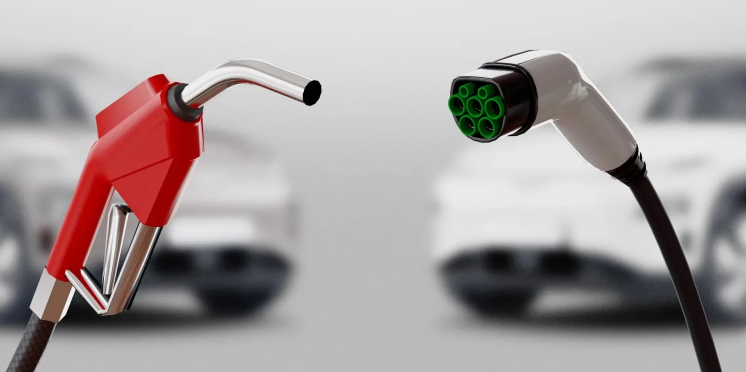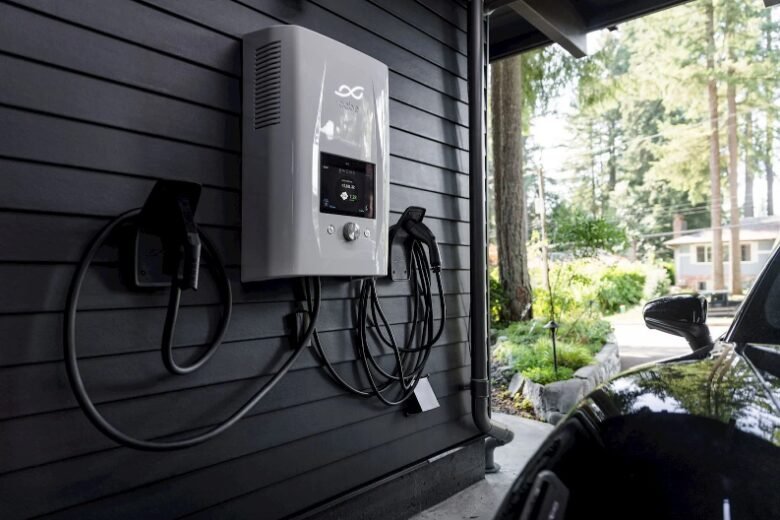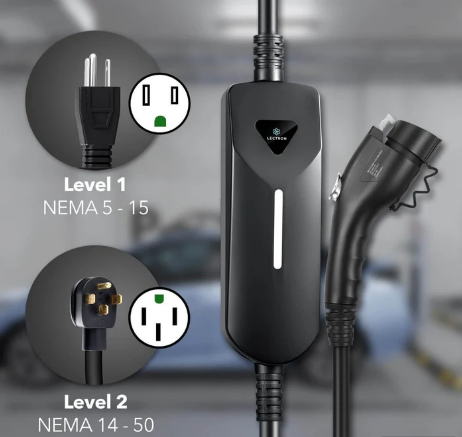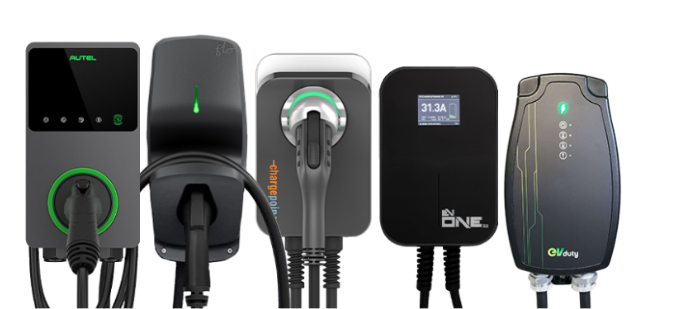Is Charging an Electric Car Cheaper Than Gas? As you consider switching to an electric vehicle (EV), one of your primary concerns might be the cost comparison between charging an electric car and fueling a gas-powered car.

The cost of charging an electric car varies depending on several factors, including your location, the type of vehicle, and your driving habits. In contrast, the cost of gas is influenced by fuel prices, vehicle efficiency, and other factors.
Understanding these costs is crucial to making an informed decision about whether an electric vehicle is the right choice for you.
Key Takeaways
- Electric vehicles offer potential cost savings compared to gas-powered cars.
- The cost of charging an electric car depends on your location and driving habits.
- Comparing the costs of electric and gas-powered vehicles can help you make an informed decision.
- Other factors like vehicle efficiency and maintenance costs also play a role in the overall cost comparison.
- Understanding the cost implications is key to choosing the right vehicle for your needs.
Is Charging an Electric Car Cheaper Than Gas? The Direct Cost Comparison
When considering the switch to an electric vehicle, one of the primary concerns is how the cost of charging compares to the cost of gasoline for your current gas-powered car. Understanding this comparison is crucial for making an informed decision about your next vehicle purchase.
Understanding Electricity Rates vs. Gasoline Prices
To compare the costs effectively, you first need to understand how electricity rates and gasoline prices are determined. Electricity rates vary by location, time of day, and even the specific rate plan you have with your utility company. On the other hand, gasoline prices are influenced by global oil prices, regional taxes, and distribution costs. Your electricity rate is typically measured in cents per kilowatt-hour (kWh), while gasoline is priced in dollars per gallon.
Calculating Your Cost Per Mile: Electric vs. Gas
To make a fair comparison, you need to calculate the cost per mile for both electric and gas-powered vehicles. For electric vehicles, this involves knowing your car’s efficiency in miles per kWh and your electricity rate. For gas-powered cars, it’s about knowing the vehicle’s fuel economy in miles per gallon and the price of gasoline. The formula for both is straightforward: Cost per Mile = Cost of Fuel / Vehicle’s Fuel Efficiency.
- For electric vehicles: Cost per Mile = Electricity Rate (cents/kWh) / Miles per kWh
- For gas-powered vehicles: Cost per Mile = Gasoline Price (dollars/gallon) / Miles per Gallon
Regional Variations Across the United States
The cost comparison between electric and gas-powered vehicles is not uniform across the United States; it varies significantly by region due to differences in electricity rates, gasoline prices, and even climate, which can affect vehicle efficiency. For instance, states with high electricity rates, like Hawaii, might find electric vehicles more expensive to operate, whereas areas with low electricity rates, such as parts of the Pacific Northwest, might enjoy significant savings.
To give you a clearer picture, here are some key points to consider:
- Electricity Rates: Vary by state and even within regions due to different utility companies and rate plans.
- Gasoline Prices: Fluctuate based on global oil prices, state taxes, and local distribution fees.
- Climate: Extreme temperatures can affect the efficiency of both electric and gas-powered vehicles, potentially altering the cost per mile.
By understanding these factors and how they apply to your specific situation, you can make a more informed decision about whether an electric vehicle is the right choice for you.
Beyond the Plug: Additional Cost Factors to Consider
When considering the total cost of owning an electric car, there are several factors beyond the direct cost of charging that you need to take into account. Understanding these additional expenses can help you make a more informed decision about whether an electric vehicle is right for you.
Home Charging Equipment and Installation Costs

One of the initial costs associated with owning an electric car is the installation of home charging equipment. While some electric vehicles come with a basic charging cord that can be plugged into a standard outlet, a Level 2 charger (240-volt) is recommended for faster charging. The cost of a Level 2 charger can range from $300 to $1,000, and installation costs can add another $300 to $1,500, depending on your home’s electrical setup.
Average Cost of Home Charging Equipment Installation:
| Equipment | Cost | Installation Cost |
|---|---|---|
| Level 1 (120-volt) | $0 (comes with vehicle) | $0 – $100 |
| Level 2 (240-volt) | $300 – $1,000 | $300 – $1,500 |

Public Charging Station Fees and Considerations
While many electric vehicle owners do most of their charging at home, public charging stations are an essential convenience, especially for long trips. Public charging stations can be free, or they may charge a fee per kilowatt-hour (kWh) or per minute. Some networks require a membership or a specific payment method.
“The cost of using public charging stations can vary significantly depending on the network and location. Some charging networks offer subscription plans that can reduce your costs if you use public charging frequently.”
Federal and State Incentives That Lower Your Costs
The federal government and many states offer incentives to encourage the adoption of electric vehicles. The federal tax credit can be up to $7,500, depending on the vehicle’s battery size and the manufacturer’s sales volume. Many states also offer additional incentives, such as rebates, exemptions from certain fees, or access to HOV lanes.
Example State Incentives:
- California: Up to $5,000 rebate through the Clean Cars for All program
- Colorado: State income tax credit of up to $5,000
- New York: Up to $2,000 rebate through the Drive Clean Rebate
Maintenance and Long-Term Ownership Savings
Electric vehicles typically have lower maintenance costs compared to gasoline-powered cars. They have fewer moving parts, and they don’t require oil changes. According to the US Department of Energy, electric vehicles can save owners around $6,000 to $10,000 in maintenance costs over the vehicle’s lifetime.

By considering these additional cost factors, you can get a more accurate picture of the total cost of owning an electric car. While there are upfront costs associated with purchasing and installing charging equipment, the long-term savings on fuel and maintenance can make electric vehicle ownership a cost-effective choice.
Conclusion: Making the Electric Switch – Is It Worth It?
As you weigh the costs of electric cars versus gas-powered vehicles, a comprehensive electric vehicle cost analysis reveals that switching to an electric car can be a cost-effective decision. By understanding the economics behind electric car vs gas car economics, you can make an informed choice that suits your budget and driving habits.
When calculating your cost per mile, electric vehicles generally offer significant savings, especially for those with access to low-cost electricity rates. Additionally, federal and state incentives can further reduce the upfront costs of purchasing an electric vehicle, making it more competitive with gas-powered cars.
While there are additional costs to consider, such as home charging equipment and potential public charging station fees, the long-term ownership savings and lower maintenance costs of electric vehicles can offset these expenses. By considering these factors, you can determine whether making the electric switch is the right decision for you.
FAQ
Is charging an electric car cheaper than filling up with gas?
Generally, charging an electric car is cheaper than filling up with gas, but the cost savings depend on various factors, including your location, electricity rates, and the efficiency of your vehicle.
How do I calculate the cost per mile for my electric car?
To calculate the cost per mile for your electric car, you’ll need to know your electricity rate and the car’s efficiency, usually measured in miles per kilowatt-hour (mi/kWh). You can then divide your electricity rate by your car’s efficiency to get your cost per mile.
Are there any additional costs associated with owning an electric car?
Yes, there are additional costs to consider, such as home charging equipment and installation costs, public charging station fees, and potential upgrades to your home’s electrical system.
Can I save money on maintenance with an electric car?
Electric cars typically require less maintenance than gas-powered cars, as they have fewer moving parts and don’t need oil changes. This can result in cost savings over the life of the vehicle.
Are there any government incentives available for buying an electric car?
Yes, there are federal and state incentives available for buying an electric car, such as tax credits and rebates, which can help lower the overall cost of owning an electric vehicle.
How do regional variations in electricity rates and gasoline prices affect the cost of owning an electric car?
Regional variations in electricity rates and gasoline prices can significantly impact the cost of owning an electric car. Areas with low electricity rates and high gasoline prices make electric cars a more economical choice.
What is the average cost of charging an electric car?
The average cost of charging an electric car varies depending on the electricity rate and the size of the car’s battery. However, on average, charging an electric car can cost between $3 to $5 per 100 miles.
How does the cost of owning an electric car compare to a gas-powered car?
The cost of owning an electric car is often lower than a gas-powered car, mainly due to lower fuel costs and reduced maintenance needs. However, the initial purchase price of an electric car may be higher.






